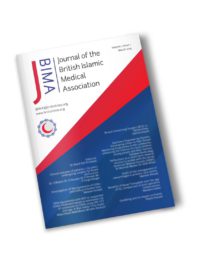
Background:
Ramadan-focused diabetes education is critical to facilitate safer Ramadan fasting amongst Muslim people with diabetes (1). However, access to and engagement with education is variable, and many healthcare professionals (HCPs) are inadequately equipped to deliver it (2,3). Digitisation can democratise high-quality diabetes education at low-cost (4). We present the design, delivery, and evaluation of two massive open online courses (MOOCs) in Ramadan-focused diabetes education for people with diabetes and HCPs
Methods:
Two Ramadan-focused diabetes education MOOCs were developed and delivered for Ramadan 2023 by a multidisciplinary group of clinicians, academics, and technologists: one for HCPs in English, and another for people with diabetes in English, Arabic and Malay.
A user-centred iterative design process was adopted, informed by user feedback from a 2022 pilot MOOC. The MOOCs featured interactive elements, videos, patient stories, and live multilingual Q&A sessions.The MOOC was delivered on a custom platform from 7th March–24th April 2023 and promotion occurred through diabetes organisations, health authorities, and media outlets.
Evaluation included platform usage analysis and mixed methods evaluation of pre- and post-course user surveys.
Results:
A total of 1531 users registered for the platform from >50 countries, 809 started a course (549 HCPs MOOC; 260 patients MOOC), and 387 completed a course (defined as ≥60% of course steps; 48% completion rate among course starters). 571 pre-course and 267 post course survey responses were collected from consenting users. HCPs worked in varied, mostly (60%) non diabetes specialist roles, 55% identified as Muslim and most self-reported high baseline levels of diabetes and Ramadan awareness. Users found the course informative and useful. In the HCP MOOC, users reported improved post-MOOC Ramadan awareness, associated diabetes knowledge and ability to assess and advise patients in relation to their diabetes during Ramadan (p<0.01). Among a small group of patients with paired survey responses (n=51–55), self-reported Ramadan-related diabetes management knowledge and confidence improved after the course (p<0.01).
Discussion
We demonstrate the potential of MOOCs to deliver culturally tailored, high-quality, low-cost, multilingual Ramadan-focused diabetes education to HCPs and people with diabetes. Evaluation demonstrated MOOCs to be useful and educational among a diverse cohort of worldwide learners.
References
- Hassanein M, Afandi B, Ahmedani MY, Alamoudi
RM, Alawadi F, Bajaj HS, Basit A, Bennakhi A, El
Sayed AA, Hamdy O, Hanif W. Diabetes and Ramadan:
practical guidelines 2021. Diabetes research and clinical
practice. 2022 Jan 8:109185. - Hassanein M, Alamoudi RM, Kallash MA, Aljohani
NJ, Alfadhli EM, El Tony L, Khogeer GS, Alfadhly AF,
Khater AE, Ahmedani MY, Buyukbese MA. Ramadan
fasting in people with type 1 diabetes during COVID-19
pandemic: The DaR Global survey. Diabetes research
and clinical practice. 2021 Feb 1;172:108626. - Almansour HA, Chaar B, Saini B. Fasting, diabetes,
and optimizing health outcomes for Ramadan observers:
a literature review. Diabetes Therapy. 2017 Apr; 8:227-
49. - Mackenzie SC, Cumming KM, Mehar S, Wilson L,
Cunningham SG, Bickerton A, Wake DJ. Education at scale: Improvements in type 1 diabetes self-management
following a massive open online course. Diabetic
Medicine. 2022 Aug;39(8): e14842.

